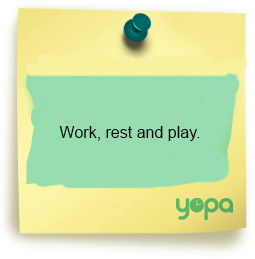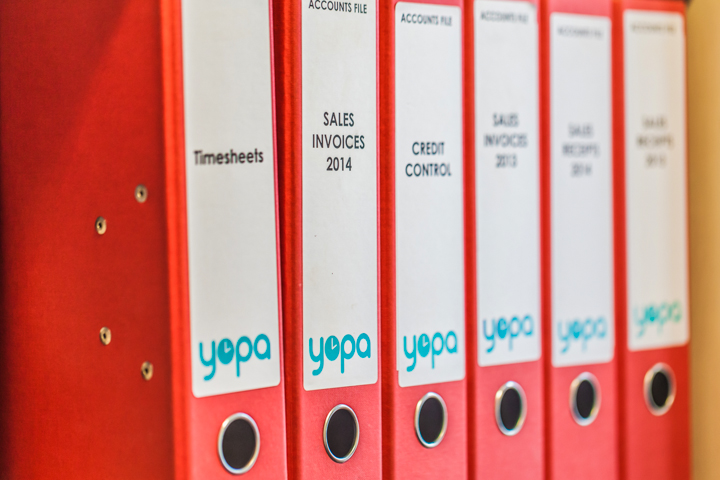
Specialist Administration Support for Electrical Contractors
We understand it is a difficult balancing act being an Electrical Contractor, carrying out installation and maintenance jobs, creating professional administration work for new and existing clients plus growing your customer base. We know this because we specialise in supporting construction and trade businesses and you’re not the only one feeling stressed and constantly juggling work and life.
We take the burden away by providing a range of successful support services, allowing you time to concentrate on maximizing job profit, efficiency and client satisfaction using a professional administration company. Also with all the administration taken care of, you get your evenings and weekends back to relax and enjoy life.
A few key benefits of our services include the following selection;
- Electrical PAT Testing – we can download testers, compile asset registers and produce a professional report for your clients. We organise scheduling and send out client reminders on your behalf, notifying a month before the next due date. We liaise with your clients to arrange their next appointment, providing a professional image for you and your business.
- Electrical NICEIC Certification – we can input manual results into electronic certificates and produce a professional document for your clients. By scheduling, reminding and liaising with clients, we provide an exceptional customer service experience and give you back time to concentrate on running jobs.
- Electrical Material Sourcing and Ordering – phone or email a list of materials, plant hire or equipment needed for the job and we will source it all at the best cost, maximizing profit and efficiency for the job.
- Telephone answering support - we provide your clients with a reliable first point of contact, a professional image, answering new enquiries and managing appointments. We can even provide you with a local landline phone number giving the perception of clients using a bigger company, rather than the unprofessional and unreliable feel of calling a mobile. No need to down your tools to answer the phone slowing down productivity, we will deal with all enquiries with a polite and friendly voice.
- Electrical Quotations – simply call your PA and provide a description of work and a cost, then leave the rest to us. We will professionally present your quotation on an electronic letterhead displaying your logo and branding, we will email your client direct for the utmost efficiency. Don’t have a logo or branding we can design that for you too.
- Sales Invoices and Expenses –we can deal with all your bookkeeping paperwork including CIS, keeping you up to date and in control of your finances.
Stand head and shoulders above your competition, we will ensure you never miss a new enquiry, give you back time to concentrate on maximizing job revenue and always provide your customers with a prompt and professional service.
Call now for a FREE consultation 01926 35577 or click here, you have nothing to lose and everything to gain, we’re here to help.

What do you need to complete your Self-Assessment?
Income:
* Details of all income received through your PAYE; you will need your P60 if you were paid up to the end of the tax year or your P45 if you stopped working through PAYE during the tax year.
* Bank statements showing any interest received and whether tax has been deducted at source on the bank accounts.
* Details of any rental income received.
* Details of any dividends received.
* Details of any ‘benefits in kind’ received by you such as health insurance through an employer.
* Full details of travel and accommodation expenses received.
* Full details of all self-employed income.
* Details of any benefits claimed.
Expenditure:
* Details of any tax deductable expenses such as office rent, phone bills, travel, professional fees, IT subscriptions, purchase of equipment, advertising costs, any repair or maintenance expenses for rental properties, charitable donations. You can find full details of allowable expenses on the HMRC website or your accountant could advise you).
* Bank statements – both personal and business if you have separate accounts.
Do you need to file a Self-Assessment?
If you receive notification from HMRC to complete a Self-Assessment or are in receipt of any income that is NOT taxed at source you must file a Self-Assessment. Usually, anyone who earns above £100,000 annually or, if you or your partner earns £50,000 or more and are in receipt of child benefit a Self-Assessment must be completed.
What is income that is not taxed at source?
This includes rental income, self-employed income (no matter how little), and dividends from shares.
When do you need to file your Self-Assessment?
The tax year (or fiscal year, the term used by those in the financial sector) runs from 6 April – 5 April and your tax return needs to be filed; on paper, by the following 31 October or online, by 31 January.
Tax Payment
Any tax due must be paid by 31 January and in some cases you may also have to make payments on account for future tax that the HMRC expect you to owe to avoid large tax bills once a year.
Getting the right tax advice and being organised will make completing your tax return a pain free process and if you are not apt at organising yourself there are businesses out there who can help.
Do I need an Accountant?
An Accountant must complete annual CPD training for their profession. They will know what can and cannot be claimed against income in addition to where you can save money.
Figures and calculations are not everyone’s cup of tea so handing everything to a professional who loves number crunching will relieve you of the stress and potentially save you money in the process.
It is also good to remember that HMRC are extremely strict with penalties for late filing so being pro-active and instructing an accountant early or taking on a bookkeeper to keep your income and expenditure organised will avoid last minute panic syndrome.
Make sure you provide your accountant or your bookkeeper with all your tax information including your UTR (unique taxpayer reference) which will be detailed on your correspondence from HMRC.
The Penalties for late submission of your Self-Assessment:
1 Day: £100 fine payable even if you have no tax to pay.
3 Months: £10 per day up to a 90-day maximum of £900 and, this penalty is in addition to the fixed day penalty above.
6 Months: either £300 or 5% of the tax due, whichever is the higher and again, this is in addition to the penalties noted above
12 Months: A further £300 fine or 5% of the tax due, whichever is the higher and in addition to the penalties above.
Furthermore, you may also be required to pay more if it is felt that you have deliberately withheld information.
If you would appreciate some help whether in the form of a Bookkeeper or a Financial Assistant then please do get in touch with us on: 01926 355777

Not just any Bookkeepers, we’re the M&S of Bookkeepers.
We have all heard the term ‘Bookkeeping’ but what kind of service are you getting from your Bookkeeper?
There are a wide range of tasks that could be encompassed in such a role which will determine the price you pay and the value you receive.
Take a moment to think about your Bookkeeping; do you need a standard data entering service or are you looking at something more comprehensive?
We can liaise with suppliers regarding queries, chase up credit notes and VAT receipts, remind you of accounting procedures and deadlines, even liaise with staff regarding payroll queries, the list is truly endless. We can offer a bespoke package tailor made just for you, providing premium support for all those tasks you don’t have time to do but are critical for the business.
Try delegating just a few small tasks to us and discover how it releases you from those daily admin pressures, allowing you to work more efficiently on your business.
We know how you feel, we understand how frustrating it can be, being swamped in paperwork and having that sinking feeling that you’re not achieving what you want every day.
We’re here to help and we know once you see the benefit from our support, you will wish you had picked up the phone months ago! With us as a part of your team, you can say goodbye to constantly trying to catch up with admin in the evenings or at weekends and instead, have some much needed downtime with friends and family.
Being a Xero Certified Partner with trained staff, you can rest assured that you are in safe hands and we will be working hard for the benefit of your business.
So don’t delay, contact us now to start taking advantage of Yopa support today.

1. Brain dump: create your list prioritise, delegate and batch tasks together.
2. Know your deadlines: set a time limit for each task and track your time.
3. Draw up a plan: create a daily plan of action and use a calendar to set reminders and recurring task.
4. Diary Management: aim to be early and add short ‘Keep Clear’ slots in your diary enabling you to catch up and gain head-space.
5. Learn to say no!
6. Focus: Turn off social media and email pop-ups and divert your phone. Multi-tasking is a skill that does take time to master and not everyone is able to function this way effectively. Instead focus on one task at a time and you will be more efficient.
7. Detach: distance yourself from time vampires and let go of the things you cannot change. Negativity is draining and will suck the energy out of you.
8. Clarity: establish procedures for dealing with enquiries and recurring tasks. This will streamline processes and ensure nothing is missed.
9. Switch off: the hardest part of all but if you leave 10 minutes at the end of each day to plan your next day, write down what you haven’t managed to do and what must be completed tomorrow and you’ll find your mind will be a little quieter enabling you to relax.
Just try one at a time and you¹ll be surprised how easy it is to start feeling in control.







